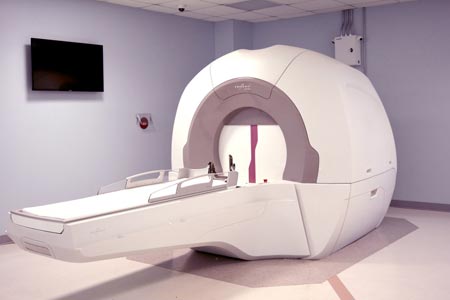A cancer diagnosis is overwhelming, intimidating, and frightening. Treatment plans often include surgery, weeks of radiation therapy, numerous chemotherapy infusions, or a combined approach of various therapies that can cause mild to severe discomfort, among other side effects.
Thankfully, within the last few decades, certain types of cancer have lost their sting and are no longer an untreatable disease. Physicians and scientists around the globe have worked relentlessly to find new therapies to cure, treat and manage all types of cancer.
Adding to this list of new therapies, Dr. Matthew Ballo, Director of Radiation Oncology at West Cancer Center & Research Institute, and partners at Semmes Murphey have advanced a new, noninvasive procedure for treating brain tumor, trigeminal neuralgia, and meningioma patients with Cranial Stereotactic Radiosurgery. This procedure not only can eliminate the need for traditional surgery, in some circumstances it has proven to be more effective, faster acting, and is an outpatient procedure that can be delivered in minutes. Cranial Stereotactic Radiosurgery is administered on a radiation machine called a MASEP Infini®, and is one of only two in the United States.
According to Dr. Jeffery Sorenson, Neurosurgeon at Semmes Murphey, "Our first treatment went really well. The treatment took a fraction of the time that the older technology we were previously using took. The MASEP Infini® system will also allow for more advanced pre-treatment collaboration between the surgeon and radiation oncologist for complex cases. We are at the beginning of a new era for radiosurgery."
Cranial Stereotactic Radiosurgery is similar to other forms of radiosurgery, in that it is not surgery in the traditional sense. There is no incision. This procedure uses specialized equipment to focus tiny beams of radiation on a specific target within the brain with submillimeter accuracy. Although each beam has very little effect on the brain tissue it passes through, a strong dose of radiation is delivered to the place where all the beams meet. The precision of Cranial Stereotactic Radiosurgery results in minimal damage to healthy tissues surrounding the target, and is usually a one-time therapy completed in a single day.
On April 22, 2019, Vicki Payton was the first patient in the Mid-South to receive Cranial Radiosurgery. As a brain metastases patient, Vicki's treatment plan would have originally included very invasive surgery into the skull and brain tissue. Now, with the option of Cranial Radiosurgery, she received more effective and timely treatment without the physical pain of a traditional therapy. Vicki states, "I was very nervous but the surgical team was wonderful and put me at ease. The actual procedure took only a few minutes with no down time. I was back to my regular routine the next day."
Matthew Ballo, MD, is also the scientific director of this initiative. He states, "Our collaborative team here at West Cancer Center & Research Institute and Semmes-Murphey are at the forefront of developing new science and technology in the realm of stereotactic radiation therapies. Our goal is to further develop the Cranial Stereotactic Radiosurgery procedure using a MASEP Infini® to then distribute this technology and our knowledge to other areas of the country to offer a new therapy option to cancer patients."
To learn more, visit www.westcancercenter.org



